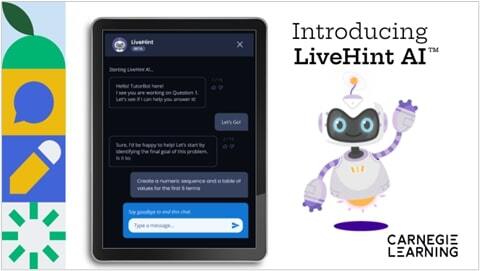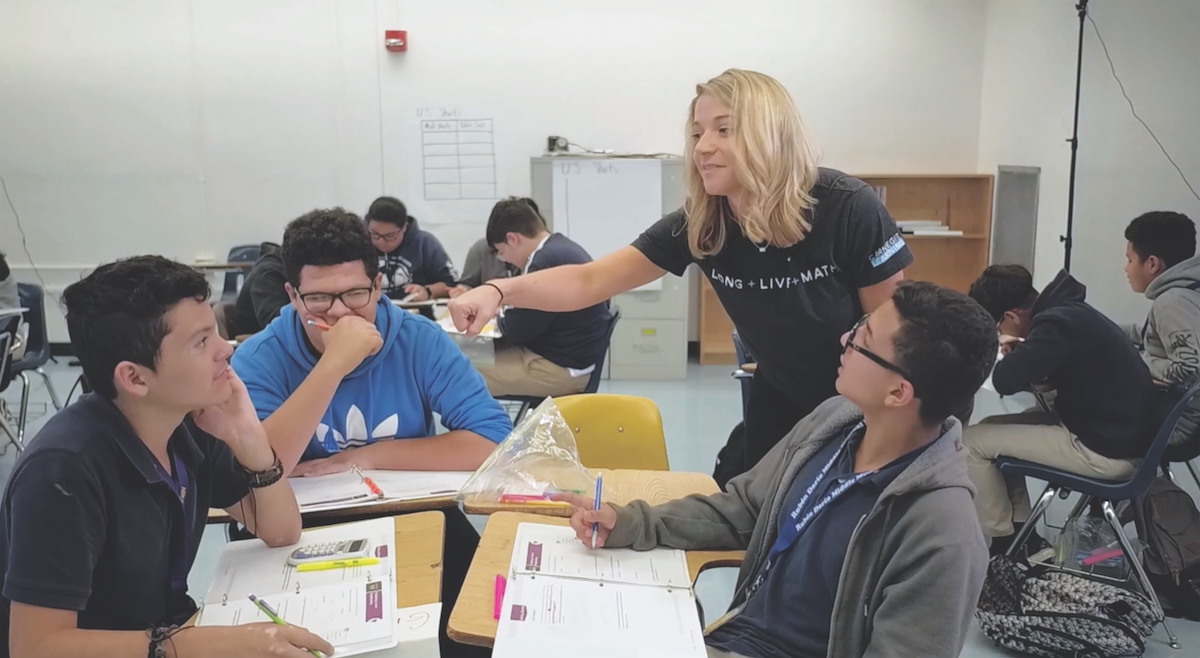A fast-growing Downtown Pittsburgh edtech company says it uses artificial intelligence in its tools to supplement kids’ learning experiences, not replace them.
Carnegie Learning is a K-12 education technology provider that offers courses in math, literacy and world languages. In 2022, the company, which employed 700 people in the US and Canada at that time, acquired James Cameron-cofounded MUSE Virtual School’s curriculum to support its AI-powered software.
In 2023, the edtech company continued its pursuit of integrating AI into education — including by launching LiveHint AI, a generative AI math tutor trained to think the way a student would. The math tool is built on a language model informed by 25 years worth of data and designed to teach according to the way students learn best.
The tool was originally conceptualized as a resource for middle and high school students who were distance learning and therefore away from the teacher needing assistance on their math assignments, Carnegie Learning Content Engineer Josh Fisher told Technical.ly. In the absence of teachers, there would be a chatbot available to answer student questions. In its final form, the tool can anticipate how students approach problem-solving while predicting the most frequently made mistakes.

“When students use it, they have the ability to provide line-by-line feedback. If there’s any particular response that they either like or don’t like, [the students] can comment on it,” Carnegie Learning Chief Data Scientist Steve Ritter said. “And then overall, in terms of the overall quality of the session, they can also comment on that.”
As of December 2023, the tool has been used among 500 students in a single district, according to the company — and so far the feedback received from students and educators has been positive.
Fisher added that something else that sets the tool apart is that its system is able to focus on comprehension, not just individual problem-solving. That’s due to its understanding of not only current textbooks, but of insights from the experiences of million of students, thanks to proprietary data the company acquired throughout its years in business.

Last year, Carnegie Learning also launched ClearMath Elementary, its first math program for students in grades K-5, and introduced MATHStream, a video-based math platform for grades six to 12, which uses social media influencers as instructors. For MATHstream, Carnegie Learning was awarded a Learning Engineering Virtual Institute grant to double math progress among middle and high school students by 2027, and the program was named Adaptive Learning Solution of the Year in the 2023 EdTech Breakthrough Awards. And K-5-focused MATHia Adventure, another tool the edtech company launched last year, won best educational game by Campus Technology and THE Journal, leading sources on technology trends and practices in the education sector.

“MATHia Adventure is in a class by itself,” Carnegie Learning CEO Barry Malkin said in a release. “Combining play and pedagogy like no other K-5 digital learning solution. We are honored by this award, which is a testament to the hard work and commitment to quality our company is known for.”
The company’s leaders hope that moving forward, Carnegie Learning can continue to pave the way for AI use in education that supplements existing material and assists children in learning.
“I think it’s important to point out the way that it points the path ahead for AI in education,” Ritter said. “There’s a lot of uncertainty about AI. A lot of teachers, administrators think AI will allow students to cheat, for example — you know, it takes the work away from them. And I think really what we’ve been trying to do with this, and what it’s accomplished and doing, is becoming a real supplement to the instructional model.”







